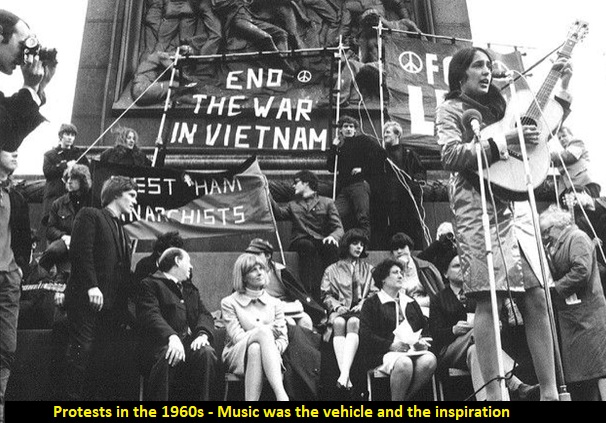During the Civil Rights Movement of the 1950s and 60s, music played a crucial role in inspiring change and mobilizing communities. Protest songs became anthems for those fighting against racial segregation and discrimination, expressing the struggles and hopes of African Americans during this tumultuous time.
Music has always been a powerful tool for social change, as it has the ability to transcend barriers and unite people from different backgrounds. In the case of the Civil Rights Movement, protest songs served as a form of resistance against oppression and injustice, giving a voice to those who were marginalized and oppressed.
Think “White Rabbit” by the Jefferson Airplane.From iconic artists like Nina Simone and Sam Cooke to groups like The Freedom Singers and The Impressions, musicians used their platform to speak out against racism and inequality. Songs like “A Change is Gonna Come” by Sam Cooke and “Mississippi Goddam” by Nina Simone became rallying cries for activists, encouraging them to keep pushing for progress.
These protest songs not only reflected the culture of the time but also influenced it, shaping public opinion and challenging politicians to take action. Music has a unique ability to evoke emotions and inspire change, making it a valuable tool for social movements.
As we look back on the impact of protest songs during the Civil Rights Movement, we can see how music has the power to bring people together and create positive change. By examining this important chapter in history, we can learn valuable lessons about the role of art in activism and how it can be used to enhance joint health and well-being.


